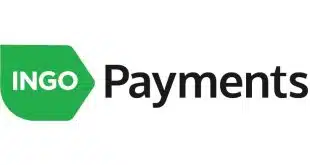Despite an apparent willingness by the new chief executive of Visa U.S.A. to meet with merchant representatives on such thorny issues as interchange pricing, some observers say the bank card association's basic position toward the retailer community is unlikely to change. John Philip Coghlan, who took over yesterday as president and chief executive of Visa U.S.A. (Digital Transactions News, July 11), told reporters and analysts he once ran a retail operation would like to sit down with merchants, who have complained bitterly in recent years about the rising cost of interchange. Last month, a group of small merchants filed a class-action lawsuit against major banks and the bank card networks, charging interchange is an antitrust violation (Digital Transactions News, June 23). But Coghlan's seeming olive branch toward merchants fails to impress some skeptics, who see it merely as rhetorical maneuvering by Visa's new top man. “It sounds like the prelude to a political convention,” says John K. Lannan, who once ran a PIN debit network for Atlantic Richfield Co. and is now chief executive of Debitman Inc., a Chico, Calif.-based PIN debit network aimed at retailers. “I've been hearing that for years.” Visa's selection of Coghlan, who most recently served as a top executive at broker Charles Schwab & Co. Inc., surprised many experts who expected the association to choose someone with more payments experience, if not someone with a retail-banking background, as both Visa and MasterCard International have done in the past. But the fact that Coghlan is not a banker?and, indeed, has some retailing experience?can't change the fact that issuing banks control the card associations, says Lannan. “This guy is going to do what the owners tell him to do,” he says, referring to the largest issuers. The only move that might make a difference to merchants, he says, is a reduction in interchange rates, which are set by the networks. Merchants pay interchange along with other fees to acquirers, which pass the interchange on to issuers. “I don't think [Visa] is going lower interchange, but that's the only thing that's going to endear them to merchants,” he says. Nonetheless, that Visa chose someone with Coghlan's background, and that some of his first statements after assuming the top job had a conciliatory ring toward merchants, may indicate the card company is starting to listen more acutely to retailers, Lannan says. “Maybe they see the frustration,” he says. “Maybe they see [merchants] are serious about where interchange is headed.”
Check Also
Crypto Gains Altitude as Private Jet Charters See Potential in the Coins
Two private-jet operators early Monday announced news about their acceptance of cryptocurrency, raising yet again …





